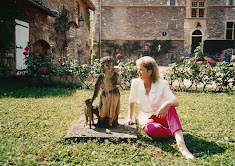.jpg)
WELCOME * BENVIDO * BEM VINDO * BIENVENUE * WÄLLKOMNA * WILLKOMMEN * ... TO this window-shop where you are FREE*ly offered several INFORMATION pages about our BOOK ...
* 50 clues - GRAMMAR *
|
Grammar
| 50 CLUES |
SPANISH |
SINOPSIS
This book has not been written to compete either with school-textbooks, neither with SPANISH GRAMMAR books of 500 or 800 pages, aimed at University students and teachers.
This is a work directed to students and/or teachers of Primary and Secondary schools who wish to have compiled in 1 volume the numerous RULES and EXCEPTIONS - concerning Morphology and Syntax - which are "scattered" along the more than eighty lessons that may include studies of Primary and Secondary courses.
Due to the book format and number of pages this GRAMMAR provides EASY handling.
The structure and summary tables will be EASY to understand and memorize.
Because of its 40 pages about "Special Difficulties", and its 33 models of IRREGULAR verbs, you had wished to have been able to consult it long ago.
Its "INDEX" General “50 CLUES” and Alphabetical will make searching EASY.
The INDEX entitled “50 STEPS” is for structuring the teaching in 50 progressive steps from minor to greater difficulty.
The information given in the ANNEX about SPAIN will be also very useful for you all.
* LIBRERÍA Avalon 2000 *
- Tannay GARDENS -

PROHIBIDA reprodución SIN permiso autor@
This book is not to be reproduced "in whole or in part" – neither is allowed the transmission, sale or storage by any form or means - either written text, images, illustrations, drawings, signs, graphs, maps, cover designs and graphic design, photography , layout and/or summary tables) - whether for processing, either electrical, mechanical, manual, chemical, optical, recording or photocopying, recording or by any other method, without the prior written permission of the owner of the intellectual property. The violation of these rights may constitute an offense against “Intellectual Property” (Article 270 of the Criminal Code).
Intellectual Property Registration * J.E.O. 00/2009/4005 * MADRID (Spain)
EDITORIAL Círculo Rojo € 39 (libro impreso) Julio 2013 / DESCUENTO 33% (Agosto 2015)
E-BOOK (blanco y negro) 9 €
VALENCIA * Flor de AZAHAR

- ORANGE blossoms -
Castillo TEMPLARIO (Ponferrada)

Castillo Templario * PONFERRADA (León)
sábado, 23 de marzo de 2013
jueves, 21 de marzo de 2013
martes, 19 de marzo de 2013
lunes, 11 de marzo de 2013
* ADJECTIVES *
|
BUENO
|
MEJOR
|
ÓPTIMO
|
|
MALO
|
PEOR
|
PÉSIMO
|
|
GRANDE
|
MAYOR
|
MÁXIMO
|




.JPG)